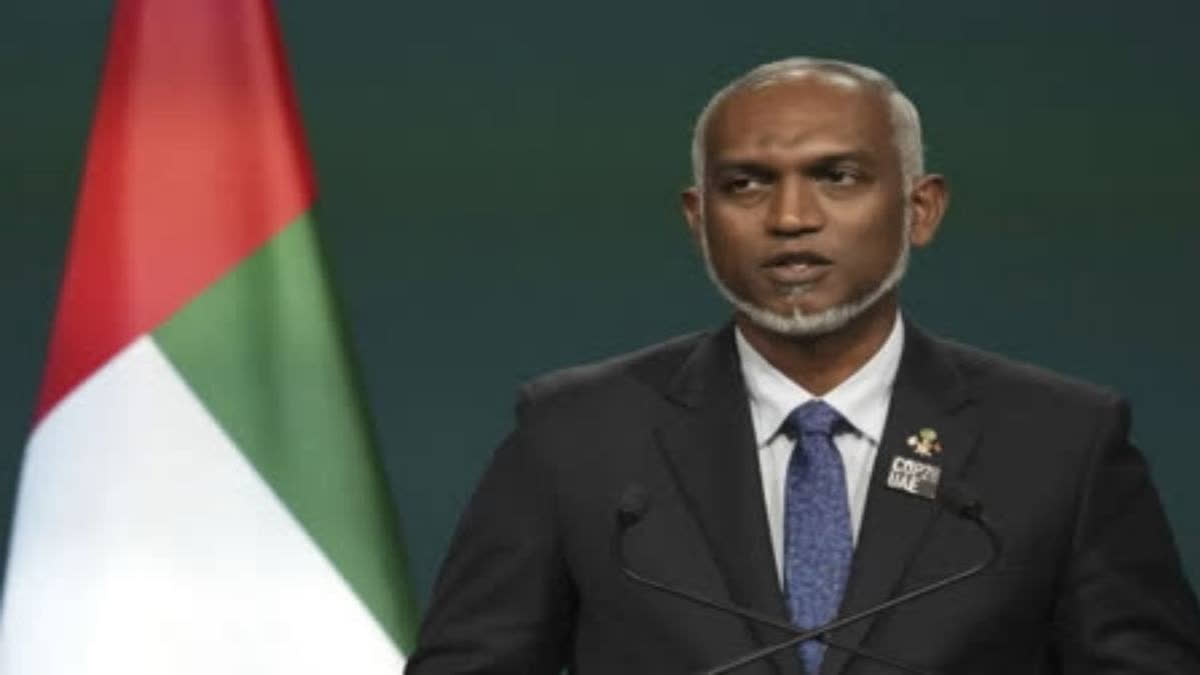New Delhi: After seeking the withdrawal of Indian military personnel present in the Maldives and deciding not to renew a hydrography agreement with India, President Mohamed Muizzu is now further upping the ante against New Delhi by targeting the health sector.
Till now, hospitals impaneled under Aasandha, the Maldives’ universal health insurance scheme, for overseas treatment of Maldivian patients were restricted to just India and Sri Lanka, the majority of them in India. Of the 61 hospitals outside of the Maldives impaneled under the scheme, 49 are in India, and the rest 12 are in Sri Lanka.
The largest amount of money disbursed by Aasandha to foreign hospitals went to Indian hospitals. Over Rs 7.5 billion has been disbursed to hospitals in India during the past 10 years and two months, according to a report in The Maldives Journal news website.
Now, following directives issued by President Muizzu, the state-owned Aasandha Company, which acts as a third-party claims administrator, has started work to expand the scope of overseas treatment for Maldivians beyond India and Sri Lanka. Citing a press release issued by Aasandha, news website edition.mv reported that the company is now in talks with Thailand and the United Arab Emirates (UAE). Both countries are leading medical care providers but at a relatively higher cost.
This comes after Aasandha managing director Ameenath Zeeniya said in the Maldives parliament last month that the company was reluctant to send patients to countries other than India and Sri Lanka. However, in the latest press release, Zeeniya said that her statements were taken out of context.
Following his return to the Maldives from a nearly weeklong visit to China earlier this month, Muizzu said that Aasandha coverage will be expanded to ensure quality healthcare for Maldivians. According to a statement issued by the President’s Office, Muizzu said that “the enhancements would diminish reliance on confined medical facilities in a select group of countries, enabling patients to pursue finer healthcare”.
“In this regard, the President declared that the imminent expansion of coverage to the UAE and Thailand would incorporate accommodation expenses within the scope of Aasandha coverage,” the statement read. This is the latest in a series of anti–India steps that Muizzu has taken after assuming office in November last year.
Muizzu had won last year’s presidential election on a pronounced anti-India plank. He ran an ‘India Out’ campaign in which he called for the withdrawal of some Indian military personnel present in his country. These personnel are primarily involved in humanitarian assistance and disaster relief work in the Indian Ocean archipelago nation. However, after assuming office, Muizzu made a formal request to India to withdraw these personnel.
Last month, the Maldives decided not to renew a hydrography agreement with India citing national security concerns and the safeguarding of sensitive information. The hydrographic survey agreement was signed on June 8, 2019, during Prime Minister Narendra Modi’s visit to the Maldives. Under the agreement, India was allowed to conduct a comprehensive study of the island nation’s territorial waters, which includes reefs, lagoons, coastlines, ocean currents, and tide levels.
And then again, earlier this month, ahead of the announcement of Muizzu’s visit to China, the Maldives decided to allow a Chinese vessel to enter its territorial waters ostensibly to do research work. This decision came despite pressure from the Indian government and concerns raised by various quarters about the vessel being a “spy vessel”. India has strongly been protesting the repeated visits by Chinese vessels to the waters of the south Indian Ocean, a region New Delhi considers to be under its sphere of influence.
As part of New Delhi’s Neighbourhood First Policy, the Maldives is strategically significant to India because of its location in the Indian Ocean. India and the Maldives share ethnic, linguistic, cultural, religious, and commercial links steeped in antiquity and enjoy close, cordial, and multi-dimensional relations. However, regime instability in the Maldives since 2008 has posed significant challenges to the India-Maldives relationship, particularly in the political and strategic spheres.
Although India continues to be an important partner of the Maldives, New Delhi cannot afford to be complacent over its position and must remain attentive to the developments in the Maldives. India must play a key role within the Indo-Pacific security space to ensure regional security in South Asia and surrounding maritime boundaries. China’s strategic footprint in India’s neighbourhood has increased. The Maldives has emerged as an important ‘pearl’ in China’s ‘String of Pearls’ construct in South Asia.
Now, with Muizzu targeting the healthcare sector as part of his anti-India foreign policy, ties between New Delhi and Male are bound to go further south.
Read More


